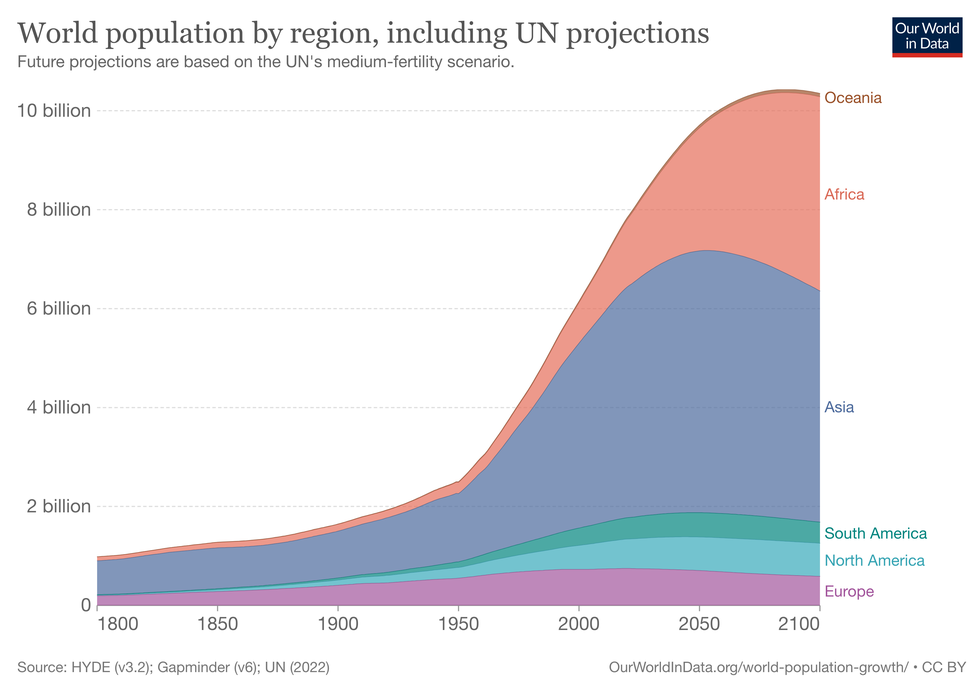- United Nations projections point to the world population peaking at roughly 10.4 billion people before 2100.
- Not all researchers agree on the population peak, with one Gates Foundation-funded study suggesting population is nearing peak now.
- Can AI reaching singularity have a declining result on human population?
Based on the U.N.’s projections, our world population could grow to around 8.5 billion in 2030 and up to 9.7 billion in 2050. Then, the peak happens at 10.4 billion during the 2080s, and the decline starts around 2100. Hell, that forecast may even be a bit on the high side, according to a University of Washington study funded by the Gates Foundation.
The point is, with the world’s population passing 8 billion late last year, the global population peak is drawing rapidly closer. But so, too, is singularity—the concept of artificial intelligence exceeding beyond human control and rapidly transforming society. (One trend shows we’ll reach singularity in just 7 years.) Will singularity throw an entirely different wrinkle into the population peak?
Advertisement - Continue Reading Below
To start, the global population is growing at its slowest rate since 1950. Blame dropping fertility rates. “Today,” the U.N. says, “two-thirds of the global population lives in a country or area where lifetime fertility is below 2.1 births per woman, roughly the level required for zero growth in the long run, for a population with low mortality.”

With the expectation of sustained low levels of fertility, this trend only continues. Jon Wilmoth, director of the population division of the U.N.’s Department of Economic and Social Affairs, elaborates:
“The cumulative effect of lower fertility, if maintained over several decades, could be a more substantial deceleration of global population growth in the second half of the century.”
The University of Washington study suggests a continued trend of a decline in fertility and a slowing population growth. The study claims that by 2100, there won’t be any more than 8.8 billion people on Earth.
Of course, if we allow AI to take over control of the world, that number could be even lower. And there’s no telling just how many (or how few) of us our new robot overlords will decide they’ll need around. Better get on your favorite algorithm’s good side now.
Tim Newcomb is a journalist based in the Pacific Northwest. He covers stadiums, sneakers, gear, infrastructure, and more for a variety of publications, including Popular Mechanics. His favorite interviews have included sit-downs with Roger Federer in Switzerland, Kobe Bryant in Los Angeles, and Tinker Hatfield in Portland.